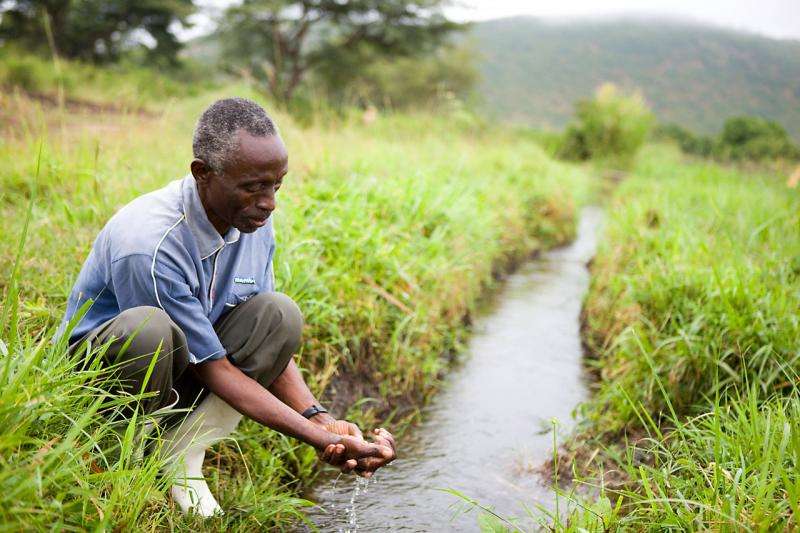Agricultural standards can do more to mitigate risk in commodity production

Standards designed to improve sustainability of production of agricultural commodities could do more to help address root causes of water-related risk, according to a new WWF report.
The assessment, Strengthening Water Stewardship in Agricultural Standards, finds that many credible sustainability standards have robust water quality and efficiency requirements. Strengthening efforts on water governance and resiliency measures for extreme weather would help to better mitigate water risks.
Research on 24 standards showed a large range of water risk exposure by crop type, with rice facing the greatest and cocoa the lowest water risks.
Despite water being ranked as the issue with the greatest potential for economic impact by the World Economic Forum (2015), few agricultural standards are including requirements for growers to mitigate their water risks coming from the catchment.
"Water is a shared resource, and you really can't solve water challenges from your own backyard," says Alexis Morgan, Water Stewardship Specialist at WWF International. "Standards are important tools for improving production of everyday items like coffee, sugar and cotton. This report highlights the significant opportunities for standard-setting bodies to harness emerging tools to ensure that healthy freshwater ecosystems can continue to support food, water and energy security in the future."
"While the commodity standards may have room to improve, all are superior to conventional agricultural practices, which continue to place our food systems at risk from water challenges," says Morgan.
The opportunities to improve how we tackle water risks are numerous, the study emphasizes, and include mutual recognition and collaboration through joint training. The report notes that growers facing water risks in stressed catchments, especially for thirsty crops, could benefit from additional guidance on how to apply the standards.
German retailer EDEKA supported the WWF study. "Mismanagement of water resources can have radical consequences for the environment and society. Therefore, identifying and reducing water risks for selected products and product groups of EDEKA's own brand range is a focus for our work," says Rolf Lange, Head of Corporate Communications, EDEKA AG.
With over 750 million people lacking access to safe drinking water, and populations of freshwater species declining by 76 per cent over the past 40 years, water continues to be a global challenge. Improving food systems is essential to ensure water for all, as some 70 per cent of global water use goes to agricultural production.
Provided by WWF


















